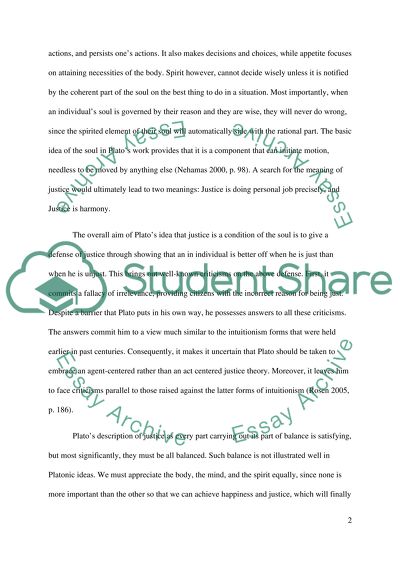Plato's Idea that Justice Is a Condition of the Soul Essay. Retrieved from https://studentshare.org/history/1449642-critically-discuss-platoyies-idea-that-justice-is
Plato'S Idea That Justice Is a Condition of the Soul Essay. https://studentshare.org/history/1449642-critically-discuss-platoyies-idea-that-justice-is.


